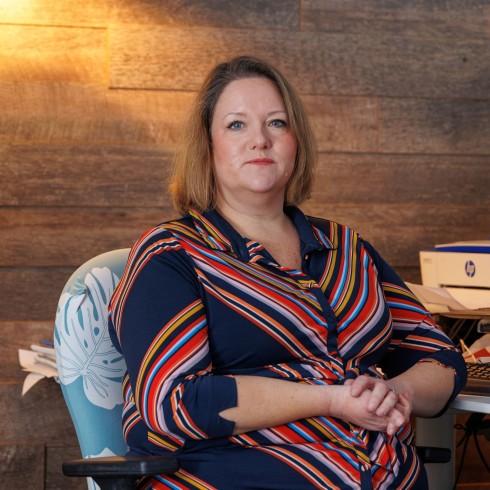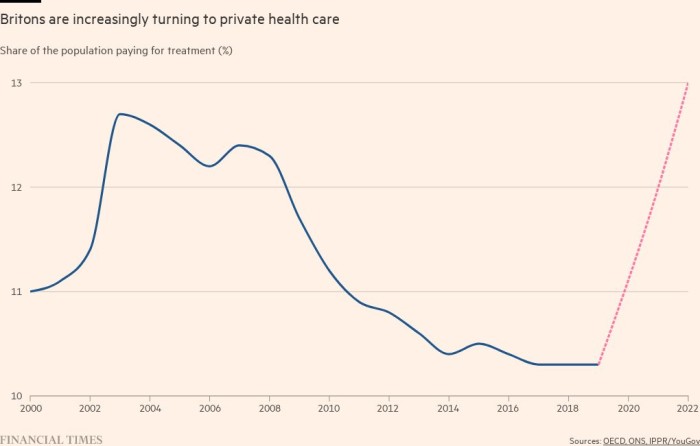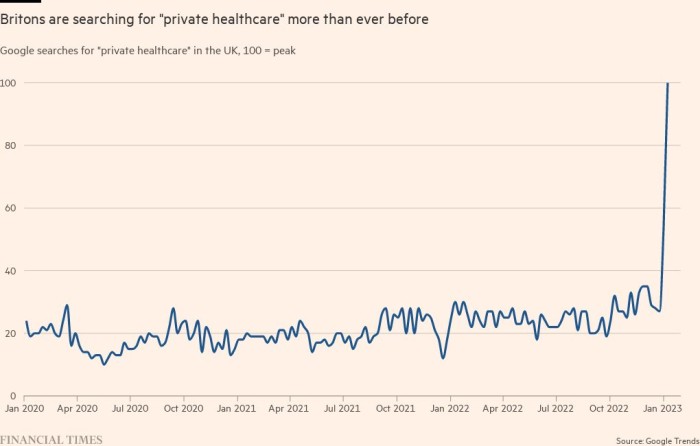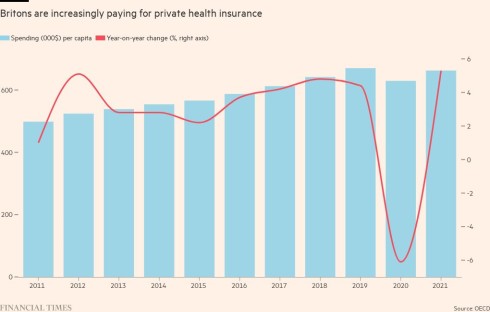NHS crisis is pushing Britons into private healthcare
When Belinda Andrews-Jones developed back pain so severe it triggered memories of childbirth, she counted on help from Britain’s taxpayer-funded NHS.
But the 47-year-old was told that it would take months to see a specialist and even then she might not qualify for surgery since her bladder was unaffected. She turned to the private sector, paying about £12,000 to have an operation at the Spire Southampton hospital to correct a severely protruding spinal disc.
She is not alone. The NHS, which marks its 75th anniversary in July, has long been seen by Britons as a repository of cherished national values. But with the queue for planned surgery at record levels and long waits for a GP appointment, millions are setting that fealty aside to buy care in the private sector.

Justin Ash, chief executive of Spire, the only listed UK private healthcare group, said the company’s hospital business was experiencing “unprecedented demand”. He added: “Obviously the waiting lists are part of the backdrop.”

But the business consultant said she had undertaken a “cost-benefit analysis”. Without the operation, she could not work. Within weeks of the surgery she had secured and started a new job. She still values the NHS and believes the UK is lucky to have a system of free healthcare. But her faith in it has been shaken.
“I just find it very, very frustrating . . . I was in horrific pain and the NHS wasn’t there for me,” she said.
One in 10 Britons made use of private healthcare before the pandemic, according to figures from the OECD. But more recent surveys show that NHS shortcomings are pushing more people to pay for treatment.
In the winter of 2021, the IPPR and YouGov found that 12 per cent of the population used some form of paid-for alternative care, with the proportion rising to 16 per cent for wealthier groups. A survey carried out by the Office for National Statistics in December 2022 puts that figure at 13 per cent.

David Furness, director of policy at the Independent Healthcare Providers Network, which represents private health companies, said recent IHPN polling showed that more than 1 in 5 people expected to use private healthcare in the next 12 months and almost half of the public would consider private healthcare if they needed treatment. The historically high level of waiting lists was driving even those who had never previously considered it to seek out private treatment, he added.
A separate survey of more than 1,000 small, medium and large UK businesses carried out for the IHPN pointed to a growing concern about the impact of long waiting lists on productivity and a willingness to consider private medical insurance for employees.
More than half of organisations were “concerned that the current rising NHS waiting times may result in employees taking long absences or permanently leaving work due to sickness”, Furness said. This rose to more than two-thirds of medium or large businesses and almost three quarters of those which had more than 1,000 employees.
Almost one in five employers were considering offering private medical insurance to their staff in the coming year — rising to almost four in ten (37 per cent) of businesses with more than 1,000 employees, he said.
Spire’s Ash confirmed the trend: “It looks to us like the underlying market for insurance is growing . . . so it’s not just self-pay which has been growing. It looks like employers are absolutely leaning into providing more insurance for their employees.”

Large insurers have seen a rise in demand. Aviva said the number of people covered by its private medical insurance had increased from 0.9mn in 2020 to 1.1mn in 2022.
This story originally appeared on: Financial Times - Author:Leke Oso Alabi



























